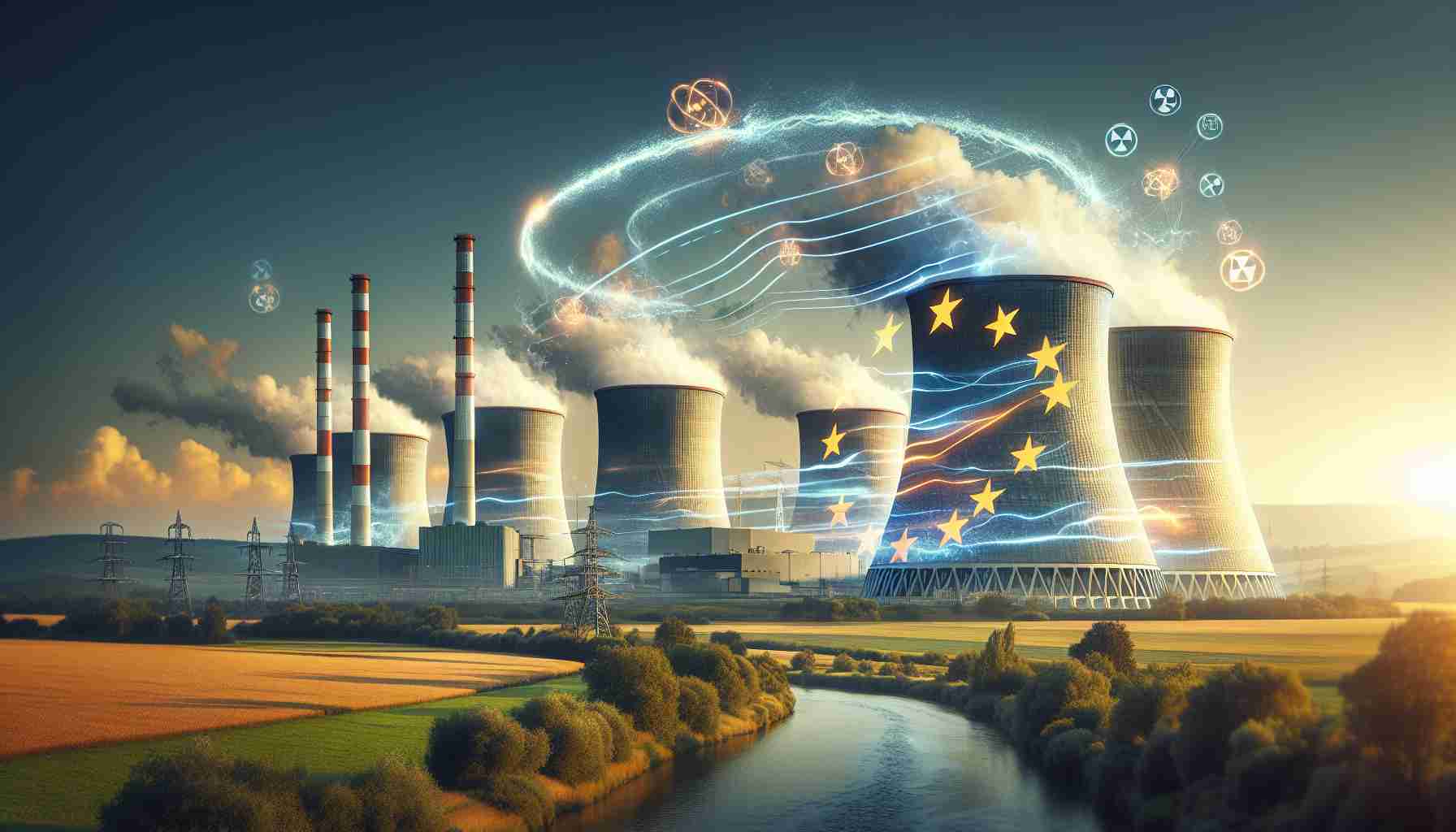- Czechia is a leading advocate for nuclear energy in Europe, with 77% public support according to a Eurobarometer survey.
- This support positions Czechia as a proponent for nuclear energy, contrary to the prevalent skepticism in the rest of Europe.
- Almost half of the Czech population views nuclear energy positively, and skepticism is the lowest in the EU at just 17%.
- The Temelín nuclear power plant has been central to Czechia’s nuclear growth for 25 years.
- Czech energy company ČEZ is a major player in the nation’s nuclear strategy.
- Construction of two new reactors at Dukovany is underway, with the first expected by 2036, led by South Korean firm KHNP.
- Czech leaders view nuclear energy as crucial to a sustainable mix of power sources, complementing renewable energy.
- Future plans include potential expansion at Temelín and the creation of modular reactors, aiming for energy independence and innovation.
Amidst Europe’s cautious approach to nuclear power, Czechia boldly steps forward as its fiercest advocate. An eye-catching 77% of Czechs cast their confidence towards nuclear energy, viewing it as crucial to the nation’s future, according to a thought-provoking Eurobarometer survey. As autumn leaves fell last year, the survey unveiled Czechia as a powerhouse of optimism in a continent often shadowed by nuclear skepticism.
Czechs embrace nuclear energy as a powerhouse propelling technological and energy advancement like no other. Nearly one-third of citizens cheer for its tremendous potential, while almost half nod approvingly in agreement. This enthusiasm positions Czechia at the forefront, where nuclear skepticism barely occupies 17% of the populace—the lowest in the European Union.
For a quarter of a century, since the Temelín nuclear power plant’s inception, the Czech affinity for atomic energy has matured steadily. Key players like ČEZ, steering the nation’s nuclear initiatives, echo this sentiment, reflecting a populace attuned to the nuclear rhythm. As architectural plans unfold, the construction of two new reactors at the Dukovany power plant, with oversight from South Korean firm KHNP, epitomizes the nation’s bold strides. The project is slated to complete its first reactor by 2036, heralding a new era of energy independence.
Czech policymakers envision nuclear power as the bedrock of a sustainable energy blend, harmoniously dancing alongside renewable sources. The ambition doesn’t stop at Dukovany; there’s potential for expansion at Temelín, alongside the development of innovative modular reactors. Czechia’s unwavering commitment to nuclear energy offers a blueprint for a nation fortified by innovation, brimming with possibilities.
Why Czechia is Charging Ahead with Nuclear Power: Uncover the Secrets Behind Their Bold Move!
How Czechia is Leading the Nuclear Renaissance
Czechia’s enthusiasm for nuclear energy presents a compelling case study in Europe’s diverse energy landscape. Unlike its European counterparts, Czechia views nuclear power as a cornerstone for national progress and energy security. This commitment offers lessons and points of reflection for other nations evaluating their own energy futures.
The Pros and Cons of Nuclear Energy in Czechia
Pros:
1. Energy Independence: Nuclear energy significantly reduces Czechia’s reliance on fossil fuels and imported energy. By expanding nuclear capacity, the country strengthens its energy security.
2. Low Greenhouse Gas Emissions: Nuclear power generates minimal emissions, aligning with Czechia’s sustainability goals and European Union climate commitments.
3. Economic Benefits: The construction and operation of nuclear power plants create jobs and stimulate technological advancements, benefiting the national economy.
4. Stable Energy Supply: Nuclear energy provides a reliable and continuous power supply, essential for supporting industrial activities and everyday needs.
Cons:
1. High Initial Costs: The upfront investment required for building nuclear reactors is substantial, posing financial challenges and requiring long-term commitment.
2. Nuclear Waste Management: Safely managing and storing nuclear waste remains a significant concern and requires ongoing innovation and regulatory oversight.
3. Potential Accidents: Although rare, nuclear accidents can have devastating impacts, necessitating strict safety measures and emergency preparedness.
Market Forecasts and Trends
In the coming decades, Czechia is expected to maintain its position as a leader in nuclear energy within Europe. With the planned construction of new reactors at Dukovany and potential expansions at Temelín, the nuclear sector is poised for growth. There is also increasing interest in small modular reactors (SMRs), which promise enhanced safety and flexibility.
Relevant Innovations and Future Predictions
Innovation in nuclear technology, such as the development of small modular reactors (SMRs) and advancements in nuclear waste recycling, could transform the industry. Czechia is likely to embrace these technologies, reinforcing its role as a trailblazer in the nuclear field.
Questions and Answers
Q: Why is Czechia so supportive of nuclear energy compared to other EU nations?
A: Czechia’s historical investment in nuclear technology, combined with public confidence and strategic energy policies, creates a favorable environment for nuclear energy. The focus on energy independence and sustainability also drives support.
Q: What challenges might Czechia face in expanding its nuclear capabilities?
A: Financial constraints, regulatory hurdles, and technical challenges in managing nuclear waste could pose obstacles. Achieving consensus among stakeholders is also crucial.
Q: How does Czechia’s nuclear strategy align with EU energy goals?
A: Czechia’s commitment to low-emission energy through nuclear power aligns with the EU’s climate goals. However, differing national policies on nuclear energy create a complex landscape for EU-wide energy harmonization.
Suggested Related Links
– European Commission
– International Energy Agency
Conclusion
Czechia’s bold approach to nuclear energy marks it as a proactive player in the ongoing energy transition. By integrating nuclear power with renewable sources, the country not only addresses energy security but also commits to a sustainable and innovative future. As global energy dynamics evolve, Czechia’s model offers valuable insights into striking a balance between tradition and innovation.
The source of the article is from the blog smartphonemagazine.nl













